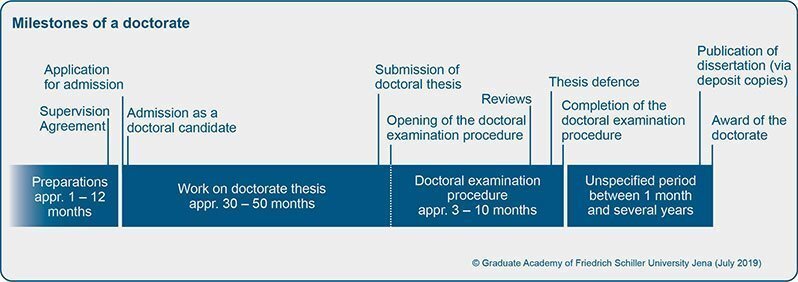
A doctoral degree is awarded by an individual faculty at a university on the basis of solid, independent and original academic work. It consists of two elements: The first one is a dissertation, the written record of academic achievement. The second one is an oral examination, which either takes the form of a dissertation defence or a colloquium.
A doctoral committee assesses the dissertation and oral examination according to academic criteria. The council of the relevant faculty ultimately decides whether or not a doctoral candidate has been successful.
Doctoral examination procedures are explained in detail in each faculty's doctoral examination regulations (Promotionsordnung). While you are working on your dissertation you will be supported by your supervisors. Your primary supervisor, who has the main responsibility for your doctoral progress, is also referred to as your 'Doktorvater' or 'Doktormutter' (doctoral father or doctoral mother). We also recommend that you become actively involved in your scientific community e.g. by cultivating contacts with other academics in your field, in particular doctoral candidates, postdocs and professors.
Depending on the field of research, the subject of the dissertation, and individual speed, it can take between two and six years to complete a doctorate. Ideally, the PhD dissertation should be submitted within three years.
Schematic representation of the course of a doctorate:
Milestones of a doctorate
Graphic: Dr. Alexander Schwarzkopf